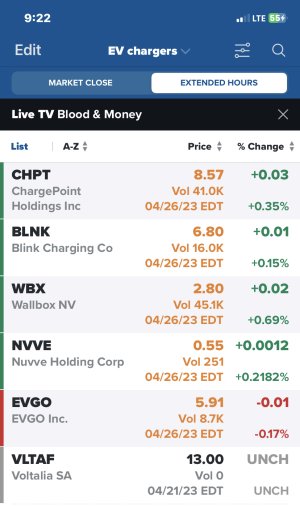qwerty
Well-known member
I don’t keep up with the EV charging infrastructure side of things. The government is essentially requiring EVs and car manufactures are getting in line but is the government doing anything to support the charging infrastructure needed both from actual chargers and the grid?? They should also require standardization of the charging hardware (connectors etc)
Or do they just want people to buy an EV for local commuting and ICE for long trips? Most households may not even be able to buy an EV. What are apartment renters supposed to do? Keep two cars as well? Or do they just have to go ICE because their buildings won’t have chargers? Or parking for 2 cars.
It will be interesting to see how the 2035 deadline for California being all EV goes. I probably sound like I am anti EV, I am just anti-inconvenience. I don’t want to have to have multiple cars based on how far I’m driving.
Or do they just want people to buy an EV for local commuting and ICE for long trips? Most households may not even be able to buy an EV. What are apartment renters supposed to do? Keep two cars as well? Or do they just have to go ICE because their buildings won’t have chargers? Or parking for 2 cars.
It will be interesting to see how the 2035 deadline for California being all EV goes. I probably sound like I am anti EV, I am just anti-inconvenience. I don’t want to have to have multiple cars based on how far I’m driving.




